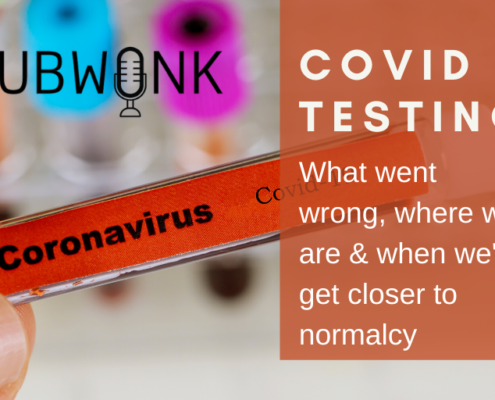Valuing Life-Saving Drugs: What is the Price of Life and Who Decides?
Hubwonk host Joe Selvaggi talks with Pioneer Institute visiting fellow Dr. Bill Smith about Quality Adjusted Life Years (QALY) standards, and the ways in which so-called objective cost-containing strategies use expert opinion to determine the value of a life and thereby disadvantage the elderly, disabled, and those with less common vulnerabilities to disease.
Guest:
 William S. Smith is Visiting Fellow in Life Sciences at Pioneer Institute. He has 25 years of experience in government and in corporate roles, including as vice president of public affairs and policy at Pfizer, and as a consultant to major pharmaceutical, biotechnology and medical device companies. He held senior staff positions for the Republican House leadership on Capitol Hill, the White House, and in the Massachusetts Governor’s office. He is affiliated as research fellow and managing director with the Center for the Study of Statesmanship at The Catholic University of America (CUA), where he earned his PhD.
William S. Smith is Visiting Fellow in Life Sciences at Pioneer Institute. He has 25 years of experience in government and in corporate roles, including as vice president of public affairs and policy at Pfizer, and as a consultant to major pharmaceutical, biotechnology and medical device companies. He held senior staff positions for the Republican House leadership on Capitol Hill, the White House, and in the Massachusetts Governor’s office. He is affiliated as research fellow and managing director with the Center for the Study of Statesmanship at The Catholic University of America (CUA), where he earned his PhD.
Related research: Analysis: ICER Framework Ignores Patient Preferences, Innovation & Societal Benefits in Evaluating Cost-Effectiveness of New Cancer Treatments
Get new episodes of Hubwonk in your inbox!
Related Posts:












